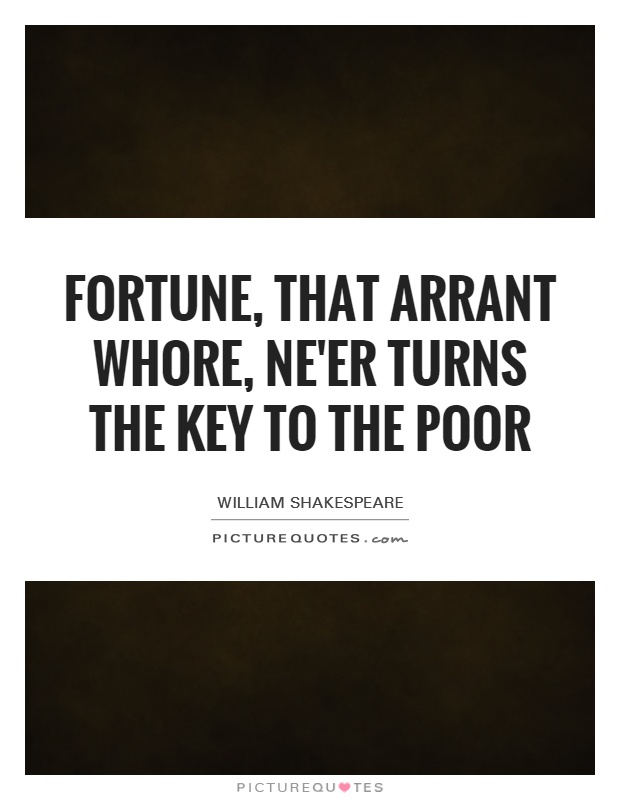Fortune, that arrant whore, ne'er turns the key to the poor

Fortune, that arrant whore, ne'er turns the key to the poor
The quote "Fortune, that arrant whore, ne'er turns the key to the poor" is a powerful and poignant statement made by William Shakespeare in his play "Timon of Athens". In this play, Shakespeare explores the themes of wealth, power, and the corrupting influence of money on society. The character Timon, a wealthy and generous nobleman, is betrayed by his friends and left destitute. He learns the hard way that wealth and fortune are fickle and can easily disappear.In this quote, Shakespeare personifies Fortune as a "whore", implying that she is fickle, untrustworthy, and only interested in serving those who are already wealthy and powerful. The phrase "ne'er turns the key to the poor" suggests that Fortune does not favor the poor or disadvantaged, but instead only bestows her favors on the rich and privileged. This sentiment reflects the harsh reality of Shakespeare's time, where social status and wealth often determined one's fate.
Shakespeare's portrayal of Fortune as a capricious and untrustworthy figure is a recurring theme in his works. In many of his plays, characters are at the mercy of fate and often find themselves at the mercy of forces beyond their control. This quote serves as a reminder that wealth and power are not guarantees of happiness or success, and that even the most fortunate can fall from grace.
The character of Timon serves as a cautionary tale about the dangers of greed, betrayal, and the corrupting influence of money. His downfall serves as a stark reminder that wealth and fortune are fleeting and can easily be lost. Shakespeare's exploration of these themes in "Timon of Athens" continues to resonate with audiences today, as we grapple with issues of inequality, social injustice, and the pursuit of wealth at all costs.












 Friendship Quotes
Friendship Quotes Love Quotes
Love Quotes Life Quotes
Life Quotes Funny Quotes
Funny Quotes Motivational Quotes
Motivational Quotes Inspirational Quotes
Inspirational Quotes